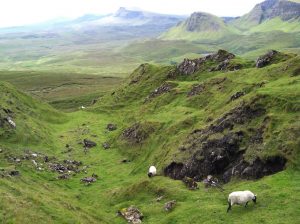 This post is a tough one to make, as it comes on the heels of the Taliban victory in Afghanistan. I’ve heard our two-decade involvement in that nation called a “quagmire,” and often wondered where we got this word, so often used metaphorically.
This post is a tough one to make, as it comes on the heels of the Taliban victory in Afghanistan. I’ve heard our two-decade involvement in that nation called a “quagmire,” and often wondered where we got this word, so often used metaphorically.
We have lots of words for swampy ground: wetland, marsh, bog, fen, morass, mire. Some like “mire” have a negative connotation, implying getting stuck, sinking, drowning perhaps. My guess was that the “ag” ending implied a Scottish origin; the Morag is a monster from Loch Morar, after all: a less-famous version of Nessie. We have those “hags” of magical origin, too. And haggis. Don’t laugh, as it’s something I came to really like during my Scottish walking trip in 2014, to the point of eating it with all three meals one day.
A look at the OED entry parts the mists to reveal not a monster of Scottish origin or a broomstick-rider but a variant spelling from the 16th and 17th Centuries: wagmire. A “quag” is, however, a rarely used word for a marshy spot. It’s likely a regional English term, as is mire or “myre” in older spellings. That word came from Scandinavia in dragon-prowed longships.
Why we need quag and mire together? It’s rather like saying “Marshy swamp” or “boggy marsh.” Perhaps the intention was to imply how dangerous a particular wet place could be. We will never know: the answer sank in the quagmire long ago and has been obscured by the marshy mists of millennia (and really bad alliteration).
If you have words or metaphors to share, contact me by e-mail (jessid -at- richmond -dot- edu) or leaving a comment below.
See all of our Metaphors of the Month here and Words of the Week here.
Bog image courtesy of Wikipedia.

